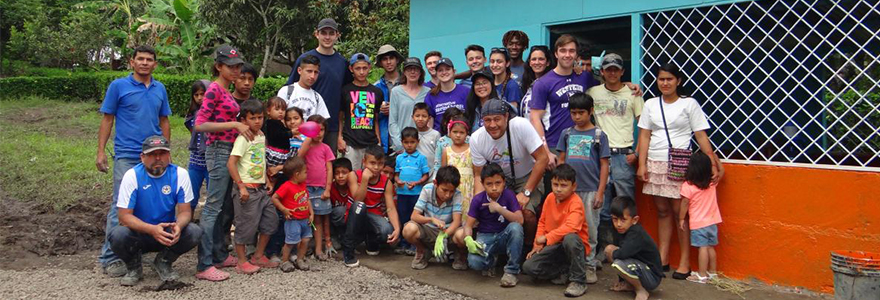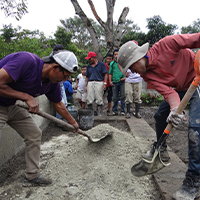Meet

I first learned about ASB through a testimonial written by a former ASB student who participated in the Nicaragua trip, which was broadcasted to students throughout the university via email. I was so inspired by the student’s experience that without thinking twice, or even bothering to first look at any of the other experiences that ASB offered (I had my blinders on), I made my decision to apply for the Nicaragua trip! Needless to say, I gave myself a pat on the back for that decision.
Throughout the Nicaragua experience, my perspective on what it meant to be a “community” was challenged repeatedly. Our team participated in a community-led project to build a small school for the local children. While there was a professional on site, the construction of the school, involving things from making cement to painting the walls, was carried out from scratch by members of the community, and most surprisingly, with the help of the children as well. The children had no obligation to help nor were they asked to; nonetheless, they happily assisted in whichever way they could, playing and chatting with us (indirectly through the translator) along the way! It truly felt like the community was one big family and we, even though only briefly, were a part of it. Despite being materialistically poor, I learned that they had something that I initially underappreciated: the wealth of love and a sense of unity among all members of the community. The ASB team was immersed within a completely different culture compared to what we would see in a typical “Western” society, and that was one of the best and most worthwhile learning experiences for me. While what I have described constituted only a part of our experience, it showed me that a “community” isn’t just a group of people living together, but rather it’s a one big, extended family!
It initially seemed like that would be the only ASB experience I would have, given that I was entering my third year in university and time became increasingly precious; nonetheless, the need to participate in another experience still lingered. Thus, I decided, why not learn about how things are in my own community? I am from Toronto and hadn’t explored much of London beyond the “Western bubble”, so, I figured that working with community partners in London would be an excellent way to learn more about my new home, and it was also more affordable and gave me enough free time to get some school work done. So, the decision was made, and I went along!
 The London experience was quite distinct from my Nicaragua experience: instead of one, we worked with four different organizations in the London community, with the theme of our experience
The London experience was quite distinct from my Nicaragua experience: instead of one, we worked with four different organizations in the London community, with the theme of our experience
Overall, the London trip exposed me to many non-profit organizations that actively work to provide assistance to members of the London community. Most importantly, however, it made me aware of the bitter reality that issues such as poverty, homelessness, and addiction are present in my own academic hometown, which is a striking contrast to what I as a student experience everyday living within the university community.
In short, ASB exposed me to the world outside of school. The program immersed me in a completely different culture, giving me the opportunity to live with and learn from its individuals, while also giving me the chance to learn about the issues that people from my own city face. Being from a science background, this was completely novel to me, but it opened my eyes (I know, cliché) to both the beauty of working together as a community and the importance of non-profit organizations that actively work to give people a better life.


 South London Neighborhood Resource Centre
South London Neighborhood Resource Centre

